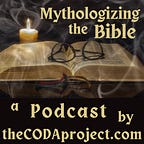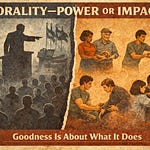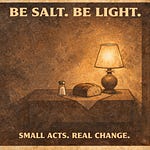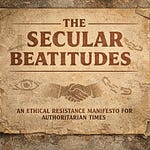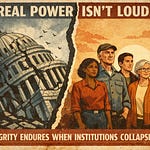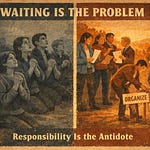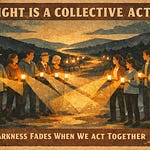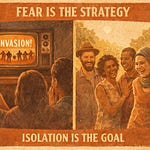Welcome to another Bonus Edition of the MTB podcast—a segment of the weekly episode that I call Afterthoughts! This is my favorite part of these weekly presentations because it gives me a chance to dig a little deeper into something that came up during the main episode.
So, this week’s theme has centered around one simple but powerful idea: community. Not just the word we toss around in mission statements or church bulletins—but real, tangible, roll-up-your-sleeves-and-show-up-for-each-other kind of community. The kind that shares food, shares burdens, and maybe even shares a decent bottle of wine.
And yet, when we look at the history of Christianity—and honestly, most organized religion—it doesn’t matter where you start, it always seems to end the same way: someone’s in charge, someone’s at the bottom, and a whole bunch of people are somewhere in the middle trying to figure out if their voice matters. Catholic, Protestant, Evangelical, Non-denominational—pick your flavor, and at some point, you’ll find someone declaring they speak for God… and a whole lot of people just nodding along.
So that’s what we’re unpacking today. Why does every grassroots movement—even the ones that begin with a group of friends and a shared loaf of bread—so often morph into top-down power structures? Is it inevitable? Is that just human nature? And if it is human nature… is there something intentional that we can do instead?
Because maybe the answer isn’t to fight for power within these old structures. Maybe the answer is to stop playing their game altogether. Maybe we can stop trying to grow the next big thing and instead learn how to spread something small and good and meaningful.

